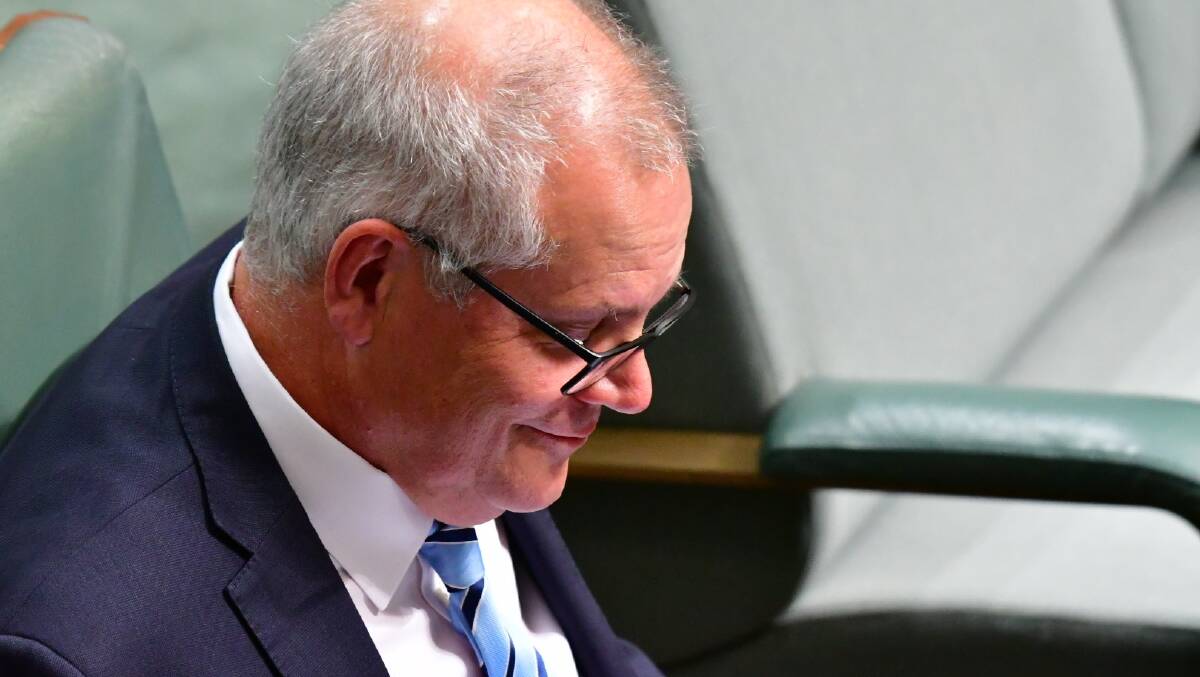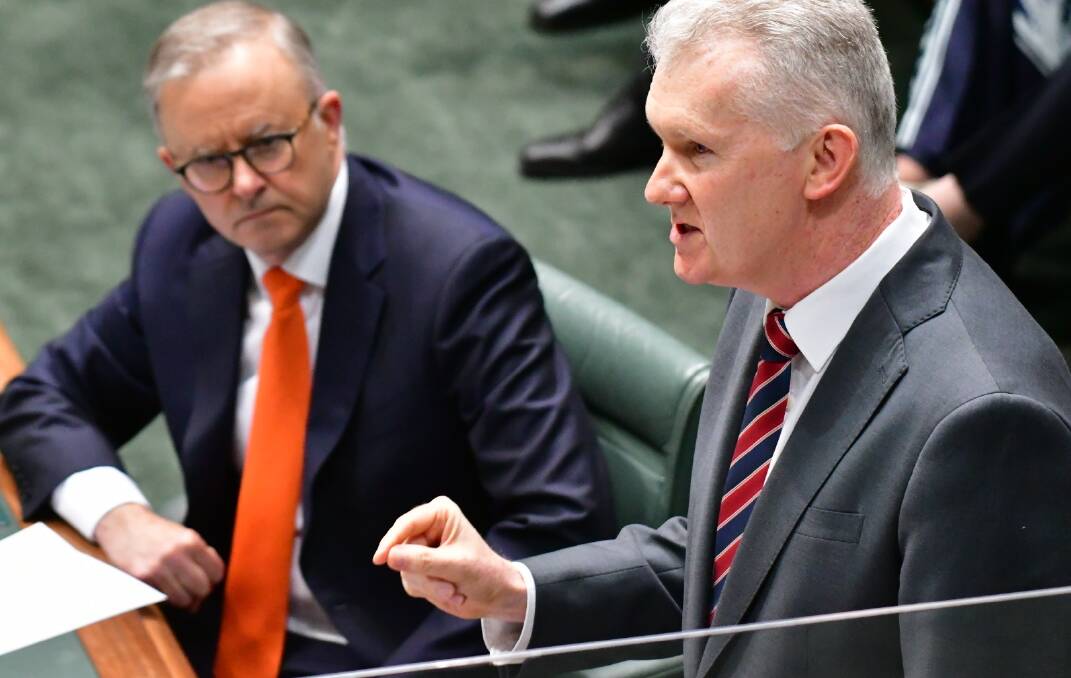Former prime minister Scott Morrison has been formally rebuked in the Federal Parliament for his secret portfolio power grab.
Subscribe now for unlimited access.
$0/
(min cost $0)
or signup to continue reading
A motion to censure Mr Morrison passed the House of Representatives 86 votes to 50 just after midday on Wednesday.
The Coalition opposed the censure, rubbishing it as a political stunt.
Mr Morrison went down swinging, using his first speech in Parliament since the federal election loss to defend his record and condemn the Albanese government for pursuing him.
"My government stood up and faced the abyss of uncertainty that our country looked into and the coercion of a regional bully and saw Australia through the storm," he said.
"Australia emerged stronger under my government.

"I have no intention now of submitting to the political intimidation of this government, using its numbers in this place to impose its retribution on a political opponent."
Liberal and National MPs demonstrated their support for Mr Morrison after his 24-minute speech, lining up to shake his hand before walking out of the chamber en masse.
Censure motions do not have any legal consequences, but they are rare and give parliamentarians the chance to formally note disapproval with their colleagues.
As expected, Liberal MP Bridget Archer crossed the floor to support Labor's motion.
"This is not an attack on the three years of the government under the former prime minister, but rather a reflection on the specific actions taken that in my view, defied the expectations we have for our leaders," Ms Archer said in a speech explaining her decision.

'Not a small matter': Burke
Leader of the House Tony Burke introduced the censure motion in Parliament after the release last week of former High Court justice Virginia Bell's report on the secret ministries saga.
The report was commissioned after revelations Mr Morrison had secretly appointed himself to administer the health, finance, home affairs, treasury and resources portfolios during the pandemic.
The Bell report found the health and finance appointments were "unnecessary", while the other three had "little if any connection to the pandemic".

The decision to hide them from the public and Parliament was "corrosive of trust in government", the report found.
Mr Morrison on Wednesday did not express regret for the decision, but in hindsight accepts that the appointments were unnecessary.
READ MORE:
Prime Minister Anthony Albanese said the fact the censure was necessary was a "profoundly sad moment" in the history of the Federal Parliament.
He called on Mr Morrison to apologise to the Australian public.
"This was an abuse of power and an utter trashing of our democracy," he said.
Labor's censure motion said the constitution provided for "responsible government" - described by the High Court as a "system by which the executive is responsible to the legislature and, through it, to the electorate".
Mr Morrison undermined responsible government by failing to disclose his ministries to the public, Parliament and cabinet, the motion said.

"[The] entire concept of responsible government only works if the Parliament, and through the Parliament, the Australian people know which members of the executive are responsible for what," Mr Burke told the Parliament.
"This is not some small matter. It goes to the absolute core of the principal of responsible government.
"The member for Cook did not ... just fall below the standards expected, he undermined them, rejected them, he attacked them, and he abused them."
'Politics of retribution': Morrison
Mr Morrison said in prosecuting the case against him, Labor was engaging in the "politics of retribution and nothing less".
"These are the behaviours of an opposition, Mr Speaker, not a government who understands that grace in victory is a virtue," he said.
Liberal frontbencher Paul Fletcher described the motion as a "exercise in political payback" as he confirmed the Coalition would oppose it.
Shadow Attorney-General Julian Leeser argued that after losing the election and facing criticism from the solicitor general and Justice Bell for the portfolios scandal, Mr Morrison had already "had enough censures".

Justice Bell's 159-page report also revealed Mr Morrison had planned to appoint himself to the environment and water portfolio - but chose not to go ahead with it.
The last MP to be censured was Liberal MP Bruce Billson in 2018 for not declaring payments while he was still in Parliament.
Mr Burke said the case for Parliament to censure Mr Morrison was stronger than it had been for Mr Billson.
Former Coalition prime minister Tony Abbott, attending parliament to unveil his prime ministerial portrait, declined to comment when asked about the censure motion on Wednesday.
"Prime ministers form the country's most exclusive club, and while there are invariably between them storms past and storms future, there should always be bonds of mutual respect," he said.
Mr Abbott has previously described Mr Morrison's decision to appoint himself to multiple ministries in secret as "unusual, unorthodox and strange", but said he was "reluctant" to condemn the conduct.



